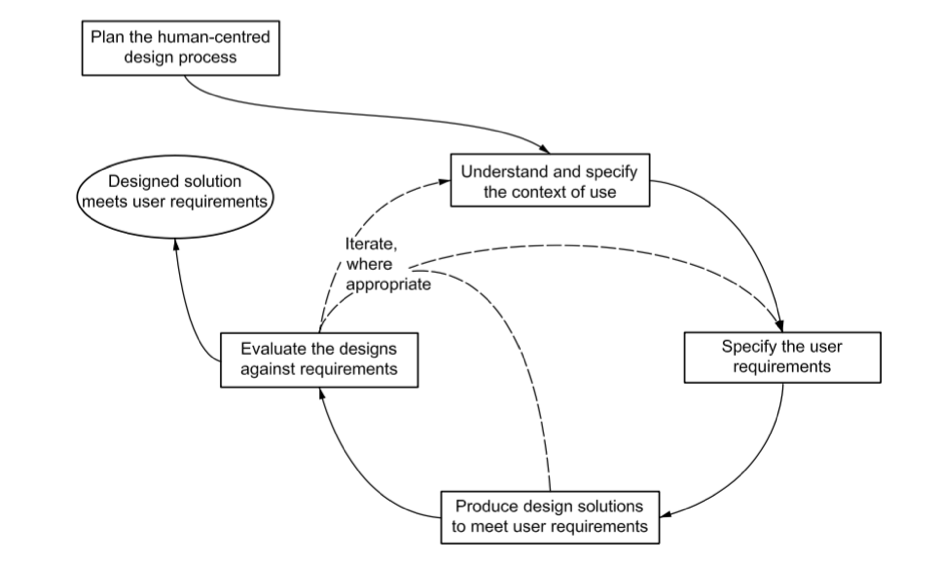Usability or human centred design is an approach to interactive systems development that aims to make systems useable and useful by focusing on the users, their needs and requirements. Health applications should conform to the IEC 62366-1:2015 on usability specific for medical devices and more general to ISO 9241-210 – Ergonomics of human-system interaction regulation that lays out the 6 key principles of User Centred Design:
- The design is based upon an explicit understanding of users, tasks and environments
- Users are involved throughout design and development
- The design is driven and refined by user-centred evaluation
- The process is iterative
- The design addresses the whole user experience
- The design team includes multidisciplinary skills and perspectives
Source: ISO 9241-210: Interdependence of human-centered design activities
This approach enhances effectiveness and efficiency, improves human well-being, user satisfaction, accessibility and sustainability and counteracts possible adverse effects of use on human health, safety and performance.
Consider the specific requirements in below headings to create user-friendly products:
